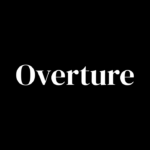The California Bar Is Flat Broke And Its Plan To Fix This Involves Throwing Out The Existing Bar Exam
When in doubt, write a new exam from scratch.
 [UPDATE 5/17: California voted to table the plan pending finalization of unspecified details.]
[UPDATE 5/17: California voted to table the plan pending finalization of unspecified details.]
The California State Bar’s Board of Trustees will meet this week to discuss a variety of issues, including the giant sucking sound coming from the Admissions Fund. Per the State Bar’s agenda notes, “The Admissions Fund faces insolvency in 2026. The State Bar’s adopted 2024 budget forecasts Admissions Fund deficit spending of $3.8 million; the fund is projected to end 2024 with just $3.3 million of reserves.”
While the California Bar incurs a nearly $4 million deficit every year, the NCBE — the educational “non-profit” writing the test — brings in around $5 million in revenue over expenses (if only we had a word for that!). You don’t rack up $158 million in total assets by offering a cheap test. Nor is the test itself the biggest expense that the NCBE saddles upon states. From a Twitter post by Sean Silverman:

Legal AI Tools And Assistants Essential For Legal Teams

The State Bar of California is broke. In an effort to save itself, it has proposed (the proposal still needs to be accepted) that it discontinue all relationship with the NCBE. There’s a lot of details on the pdf about this, but the crux is that when you administer an NCBE test, you’re bound by terms that the state bar would prefer to not be bound by. Especially the term preventing it from allowing for at-home testing, because at-home testing will allow it to save lots of money (and possibly eliminate its deficit).
Indeed, the State Bar memo estimates that adopting the changes would yield between $2.8 million and $4.2 million in annual savings. The reform would also have the benefit of aiding applicants who currently have to deal with the hassle of traveling and lodging to take in-person exams.
In place of the NCBE, the proposal before the board would commission Kaplan to write an exam that tracks the existing format while allowing the state to move toward alternative test administration arrangements — in other words, something that allows them to stop renting out giant halls.
One proposal would involve transitioning to Kaplan-owned facilities for administration, but that’s the option that saves the least money so there’s going to be a lot of interest in moving to an online (or at least hybrid) option soon.
Sponsored

Legal AI Tools And Assistants Essential For Legal Teams


Law Firms Now Have A Choice In Their Document Comparison Software

From AI To KPI: The Law Department Tech Trends Of 2024

Diving Into Generative AI: A Practical Guide For Law Firms Starting From Scratch
Now, California’s COVID-era online exam efforts left a lot to be desired. When the vendor’s solution wouldn’t work, the state simply gave up on responding to support requests from examinees and after the fact decided to just blindly accept that one-third of the examinees were cheating and the whole thing turned out to breach state procurement procedures. But that didn’t mean the examiners were wrong to try to find an online solution. Perhaps the disastrous experience of a few years ago has taught them key lessons.
Staff have received proposals from vendors capable of administering a fully remote bar exam, possessing the necessary infrastructure to accommodate the significant volume of applicants. All the vendors under consideration offer live remote proctoring, effectively addressing various exam security and integrity concerns that emerged during the pandemic-era remote exams. A fully remote administration approach would alleviate costly and labor-intensive tasks such as securing and managing large exam facilities and the recruitment and compensation of proctors. Staff continues to assess how to provide an equivalent exam experience for applicants with testing accommodations in a fully remote environment.
Yeah… let’s not hold our collective breath on this part.
In exchange for taking on the role of preparing the exam, Kaplan would agree to leave the bar prep business for California.
The primary objection to the proposal stems from its aggressive timeline, seeking to have this summer’s bar exam be the last one provided by the NCBE.
Sponsored

Referral Fees The Key To Growing A Modern Practice? Overture Thinks So.

Diving Into Generative AI: A Practical Guide For Law Firms Starting From Scratch
• June 2024: Delivery of an initial 35 multiple-choice questions to begin the content validation process.
• August 2024: The study guide for applicants will be prepared. Revised guides will be produced periodically after that.
• August-December 2024: 150 multiple choice questions will be delivered roughly monthly. The State Bar, as well as the panel of admittees, supervisors, and law school professors, will evaluate the materials on a rolling basis.
• September 2024: The faculty guide for law schools will be prepared.
• October 2024: Field testing some of the questions developed by Kaplan at the California Bar Exam Experiment.
• February 2025: Newly developed multiple-choice questions will be administered at the bar exam. Subsequently, Item Response Theory, the same approach utilized by the NCBE, will be used for question validation, and a passing score study will allow for equating of future exams.
• Ongoing: All questions shall be provided to the State Bar at least six months prior to each bar exam administration.
That’s a lot to ask of a vendor in a short timeframe. Silverman believes the proposal will pass but might well be modified to slow down the transition. That’s probably the most prudent option, but the mounting deficit might not afford the bar that luxury.
We’ll see what happens this week.
 Joe Patrice is a senior editor at Above the Law and co-host of Thinking Like A Lawyer. Feel free to email any tips, questions, or comments. Follow him on Twitter if you’re interested in law, politics, and a healthy dose of college sports news. Joe also serves as a Managing Director at RPN Executive Search.
Joe Patrice is a senior editor at Above the Law and co-host of Thinking Like A Lawyer. Feel free to email any tips, questions, or comments. Follow him on Twitter if you’re interested in law, politics, and a healthy dose of college sports news. Joe also serves as a Managing Director at RPN Executive Search.







